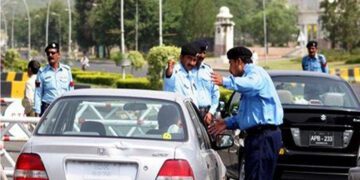![]() Follow Us on Google News
Follow Us on Google News
Afghanistan is Pakistan’s neighboring Muslim country, and Pakistan has maintained good relations with it since its inception. However, certain regional issues and prejudiced attitudes have become a burden for both nations.
One significant issue for Pakistan is the presence of millions of Afghan refugees who have crossed the border into Pakistan over the years. These refugees have not only bought property in Pakistan but have also been residing here for several decades, with some individuals being involved in criminal activities.
If these crimes were of a minor nature, they might have been tolerable, as when a large population migrates to a land, some individuals can be good for their host country, while others may pose problems. However, not all people are the same.
Recently, under the leadership of Caretaker Prime Minister Anwaarul Haq Kakar’s government, the federal government decided to gradually repatriate Afghan refugees to their homeland and cleanse Pakistan of illegal immigrants.
Undoubtedly, accommodating illegal immigrants for an extended period poses significant challenges for Pakistan, as it needs to control resources, the economy, essential commodities, and crime rates. It is essential to provide a smooth path for the repatriation of such immigrants.
Various governments, including the current government led by Prime Minister Anwar-ul-Haq Kakar, have complained to Afghanistan about cross-border terrorism and terrorist attacks by TTP (Tehreek-e-Taliban Pakistan), which include targeting killings and even attacks on security agencies.
While neighboring Afghanistan has responded positively to Pakistan’s complaints, adopting a policy of non-cooperation with TTP, but it is not sufficient. Pakistan’s top priority should be the safety of its own people, and some international laws and organizations, including the United Nations and the international community, may question Pakistan’s commitment to human rights if it forcibly repatriates Afghan refugees.
According to international laws, no country can expel immigrants until it ensures their safety, well-being, and a safe path for their return to their home country.
However, Pakistan faces the challenge that Afghan refugees can claim that Afghanistan is still unsafe for them, despite the Afghan Taliban’s declaration of general amnesty for their opponents. Pakistan should prepare itself to address such challenges on the international stage to avoid any humanitarian crisis while ensuring the return of Afghan refugees with dignity.
The issue of illegal immigrants is complex and requires a delicate balance between Pakistan’s national interests and international human rights standards. Pakistan should work closely with Afghanistan, the international community, and organizations to ensure the safe repatriation of Afghan refugees while addressing any legitimate concerns they may have about their safety upon return to Afghanistan.




























